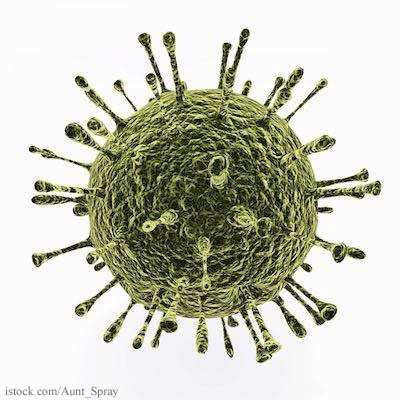Norovirus, what many people call “stomach flu” is the most common cause of gastroenteritis in the U.S. and its peak season coincides with the holiday season, November-January. Each year, about 20 million Americans get the stomach bug that causes vomiting, diarrhea and abdominal cramps, according to the Centers for Disease Control and Prevention (CDC).
 Norovirus is extremely contagious and spreads quickly in crowded places like crowded, closed places such as preschools, daycare centers, nursing homes, schools, hotels, and cruise ships. You can get it by touching a contaminated surface, eating or drinking food that is contaminated, or having direct contact with someone who has it. It takes fewer than 20 particles of the virus to make someone sick and the virus can live on hard surfaces for weeks.
Norovirus is extremely contagious and spreads quickly in crowded places like crowded, closed places such as preschools, daycare centers, nursing homes, schools, hotels, and cruise ships. You can get it by touching a contaminated surface, eating or drinking food that is contaminated, or having direct contact with someone who has it. It takes fewer than 20 particles of the virus to make someone sick and the virus can live on hard surfaces for weeks.
People who have norovirus are contagious from the time they become ill until at least three days after their symptoms resolve. That’s one reason why about half of all food posioning outbreaks are caused by norovirus.
There isn’t a vaccine or treatment for norovirus. If it comes your way, you’ll be pretty sick for 24-72 hours. Do your best to stay hydrated. Signs of dehydration include decreased urination, a dry mouth and throat, and feeling dizzy when standing up. Dehydrated children may cry with few or no tears or be unusually sleepy or fussy. If you become dehydrated, and can’t keep liquids down, see a health care provider. Severe dehydration can be fatal. death.




